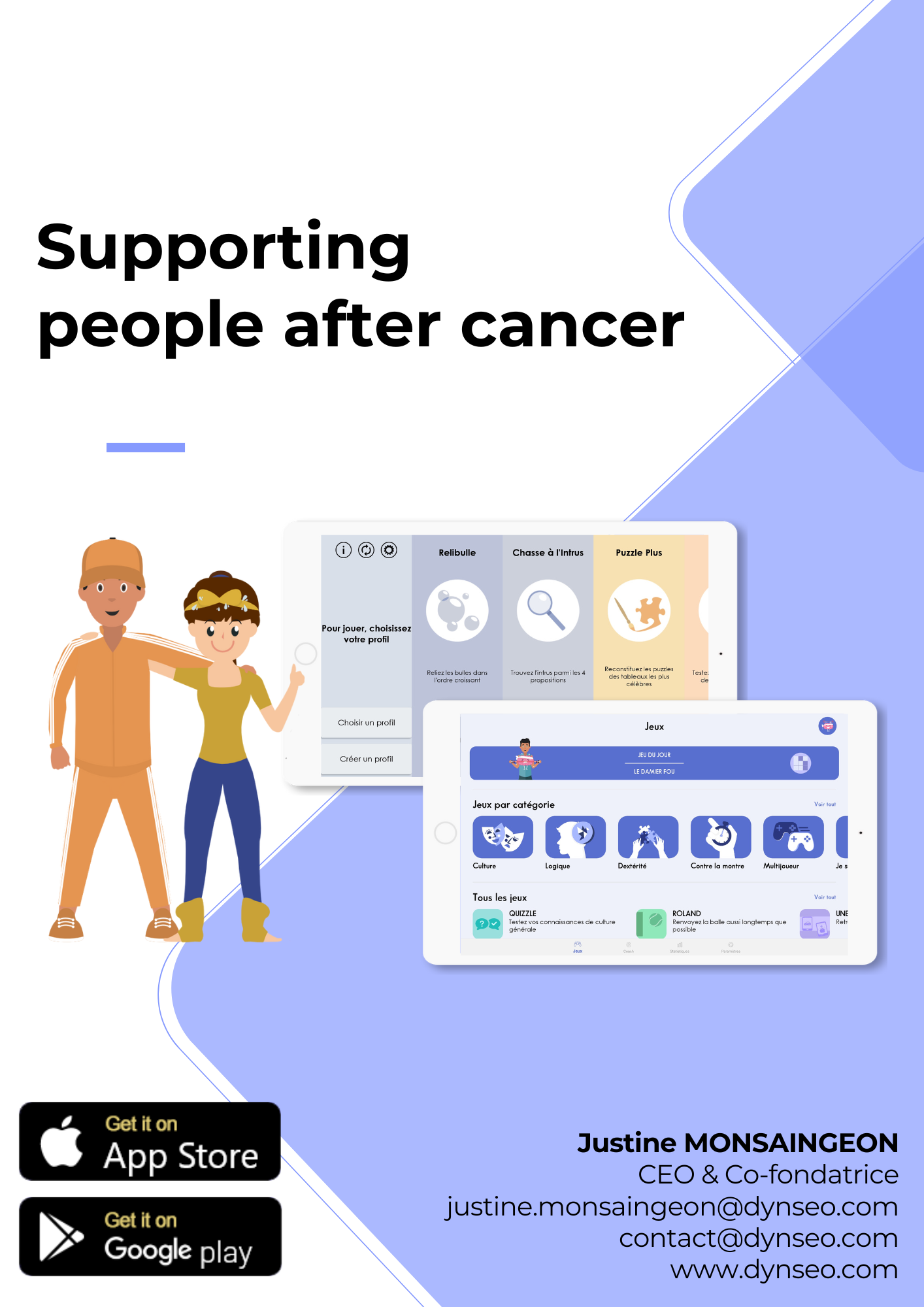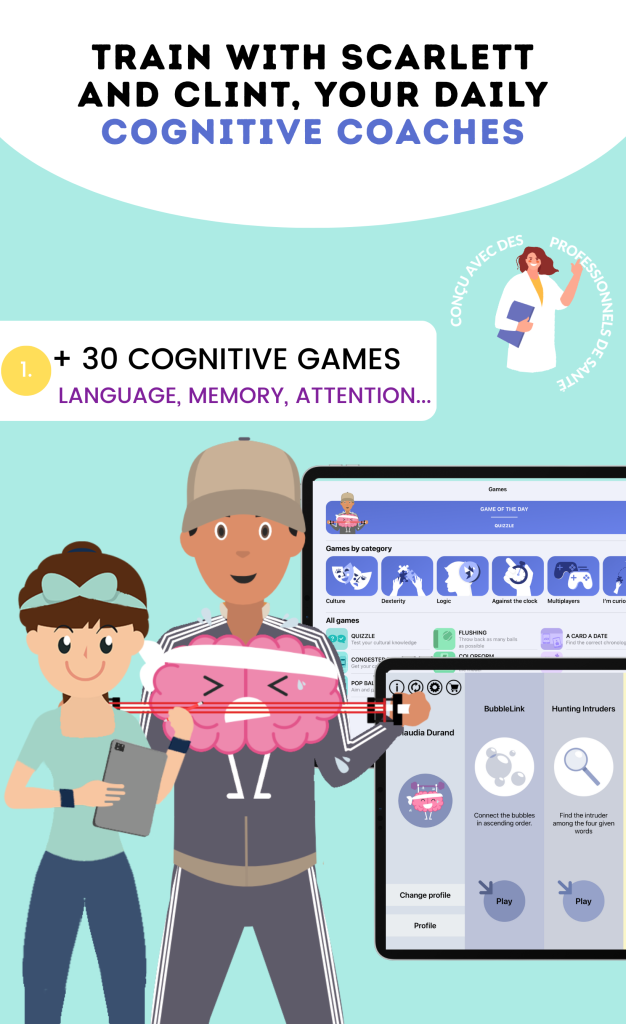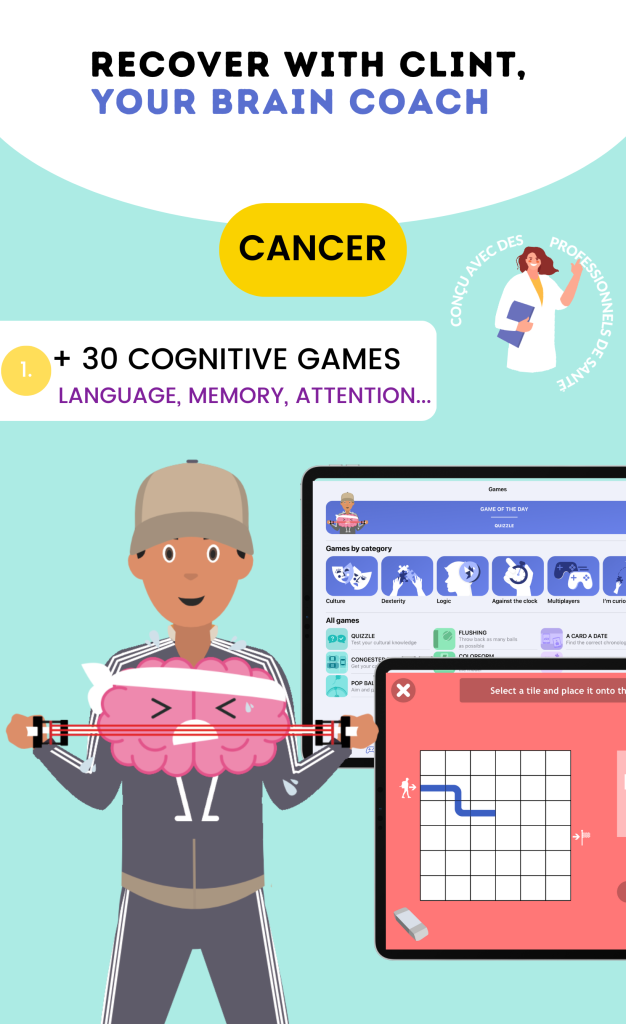Thyroid cancer is a disease that can have a significant impact on patients' cognitive function. The thyroid is a gland located in the neck that produces hormones essential for proper brain function. When this gland is affected by cancer, it can lead to problems with memory, attention, and concentration. Cognitive rehabilitation is therefore essential to help patients with thyroid cancer regain their cognitive abilities and improve their quality of life.
The Impact of the Thyroid on Cognition
The thyroid plays a crucial role in brain function. It produces hormones that regulate metabolism, growth, and brain development. When the thyroid is affected by cancer, it can disrupt hormone production and lead to cognitive problems. Cognitive symptoms associated with thyroid dysfunction include problems with memory, concentration, problem-solving, and decision-making.Types of Cognitive Rehabilitation Available
There are different types of cognitive rehabilitation programs available for patients with thyroid cancer. These programs aim to help patients regain their cognitive abilities using specific techniques. Some programs focus on improving memory, while others focus on attention and concentration. Some programs use cognitive exercises, such as puzzles and memory games, while others use relaxation and meditation techniques to improve concentration.Cognitive Symptoms After Thyroid Cancer
After treatment for thyroid cancer, many patients may experience cognitive symptoms such as problems with memory, attention, and concentration. These symptoms can have a significant impact on patients' daily lives, making them slower and less efficient in their daily tasks. Patients may have difficulty remembering things, concentrating on a given task, or making decisions. These symptoms can also lead to decreased self-confidence and a deterioration in quality of life.◆ ◆ ◆
Causes of Cognitive Deterioration After Thyroid Cancer
Several factors can contribute to cognitive deterioration after treatment for thyroid cancer. One of the most common factors is radiotherapy, which can damage brain cells and lead to cognitive problems. Chemotherapy can also impact cognitive function due to its side effects on the brain. Other factors such as stress, anxiety, and depression can also contribute to cognitive deterioration in patients with thyroid cancer.Cognitive Tests to Diagnose Rehabilitation Needs

Patients with thyroid cancer, after treatment, may experience difficulty concentrating or remembering information. Cognitive rehabilitation is designed to restore these cognitive functions using techniques and strategies adapted to each individual. This includes exercises aimed at improving working memory, selective attention, and the ability to organize information. Through targeted sessions, patients can see an improvement in their ability to manage their daily lives, which is crucial for their independence.2. Reduction of Depression and Anxiety Symptoms
Cognitive dysfunction in patients with thyroid cancer can also be accompanied by depressive or anxious symptoms. These symptoms can be exacerbated by the frustration felt when facing the loss of cognitive abilities. Cognitive rehabilitation provides essential support by improving mental function, which helps reduce these emotional symptoms. By making patients more autonomous and capable of carrying out their daily activities, this approach can strengthen their self-confidence and improve their psychological well-being.3. Regaining Self-Confidence and Resuming Daily Activities
One of the main objectives of cognitive rehabilitation is to help patients resume a normal life in which they can accomplish daily tasks with autonomy. Through rehabilitation techniques, patients learn to structure their day, remember essential information, and organize their environment to improve their functioning. The success of these steps strengthens their confidence in their abilities and allows them to engage again in social, family, and professional activities.
Techniques to Improve Memory, Attention, and Concentration
The techniques used in cognitive rehabilitation are varied and target several specific areas of cognitive abilities. To improve memory, attention, and concentration, here are some effective strategies:1. Cognitive Exercises:Practical exercises are used to stimulate memory and executive functions. Memory games, puzzles, and brain rehabilitation applications, such as Lumosity or CogniFit, can be used to strengthen working memory and speed of information processing. These interactive tools offer regular and measurable exercises that allow tracking the patient's progress.2. Organization and Planning Strategies:
Patients are often encouraged to use tools such as calendars, to-do lists, or time management applications to improve their organization. By planning their days in a structured manner and using reminders for important tasks, patients can reduce cognitive overload and improve their time management.3. Relaxation and Meditation:
Stress and anxiety can worsen cognitive disorders, particularly by decreasing concentration. The practice of relaxation techniques, such as meditation, deep breathing, and yoga, can help reduce stress and improve attention. These relaxation techniques are often integrated into cognitive rehabilitation programs, thus reducing the impact of stress on cognitive abilities.
Factors Influencing Cognitive Rehabilitation Results
The success of cognitive rehabilitation can vary from one patient to another, depending on several factors influencing the process. These factors must be taken into account to maximize the results of cognitive rehabilitation.1. Patient Motivation:Motivation is a determining factor in the success of the cognitive rehabilitation program. Patients who are actively involved in their rehabilitation, who commit to practicing the exercises regularly, and who believe in the possibility of regaining their cognitive abilities are more likely to experience substantial improvements.2. Family and Social Support:
Support from family and friends is essential to help patients overcome post-cancer cognitive difficulties. Loved ones can encourage patients to participate in exercises, support them morally, and create an environment conducive to rehabilitation. A strong social network contributes to both motivation and adherence to the rehabilitation program.3. Severity of Symptoms and Duration of Treatment:
The severity of initial cognitive disorders, as well as the duration of cancer treatment, can impact the results. Patients who have undergone long and intensive treatment may experience more significant cognitive deficits, which may require more prolonged rehabilitation sessions. However, even in severe cases, cognitive rehabilitation can lead to significant improvements, provided that the program is adapted to the patient's progress.
Healthcare Professionals Involved in Cognitive Rehabilitation
Cognitive rehabilitation of patients with thyroid cancer involves a multidisciplinary team of healthcare professionals, each with a specific role to play.1. Neuropsychologists:Neuropsychologists are responsible for evaluating the patient's cognitive functions, identifying areas requiring intervention. They also design a personalized rehabilitation program, taking into account each patient's specific cognitive symptoms.2. Occupational Therapists:
Occupational therapists help patients adapt their environments and develop strategies to accomplish daily life tasks. They provide practical tools, such as technical aids to improve memory or organization, and teach adaptation strategies to facilitate autonomy in daily life.3. Psychologists:
Psychologists intervene to support patients emotionally and psychologically. They help manage the emotional side effects related to cognitive deficits, such as frustration, anxiety, and depression. Psychological support is essential to maintain a positive attitude and promote adherence to the rehabilitation program.
Strategies to Maintain Cognitive Health After Rehabilitation
Once cognitive rehabilitation is completed, it is crucial for patients to maintain their cognitive abilities to avoid progressive deterioration. Here are some strategies to maintain cognitive health after rehabilitation:1. Healthy Lifestyle:A balanced lifestyle is essential for long-term cognitive health. This includes a diet rich in antioxidants, omega-3s, and nutrients beneficial for the brain, as well as regular physical activity to stimulate blood circulation and improve memory.2. Brain Games and Stimulating Activities:
Brain games, such as crossword puzzles, sudoku, or logic games, can help maintain cognitive stimulation. Additionally, creative activities such as painting, reading, or learning new skills also contribute to maintaining brain health.3. Stress Management:
Chronic stress can negatively affect cognition, particularly memory and concentration. It is therefore essential to continue practicing relaxation and meditation techniques to manage stress and preserve cognitive health.





